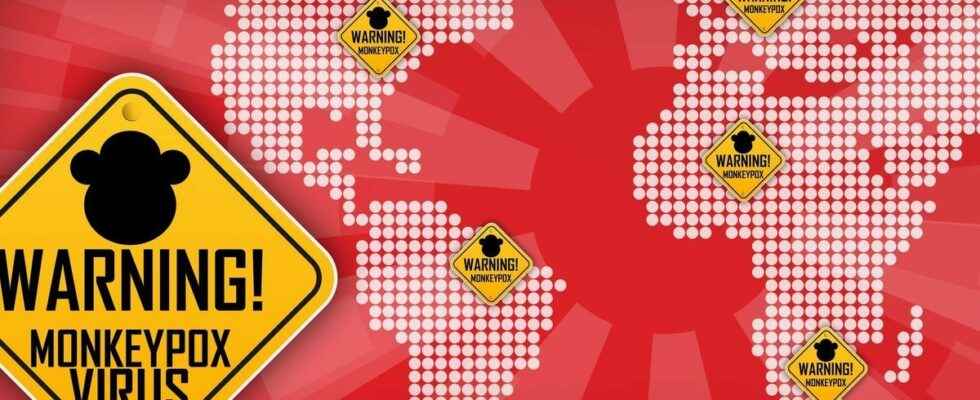Published on
Updated
Reading 2 mins.
The monkeypox epidemic continues to gain ground in Europe. While the continent has more than 17,000 cases, the World Health Organization has decided to trigger the maximum alert.
Monkeypox is a growing concern for health authorities. While this disease was until now endemic only in Africa, it now affects many countries in Europe.
A level of alert triggered by the head of the WHO
The new cases of monkeypox, which mainly affect men who have sex with men, are mainly in Europe. This is what prompted the director general of the World Health Organization (WHO), Tedros Adhanom Ghebreyesus, to trigger maximum alert, in an attempt to control the disease.
Monkeypox is now considered to be “a public health emergency of international concern (USPPI)”, in accordance with international health regulations. A decision taken by Tedros Adhanom Ghebreyesus, without having had the approval of all the members of the committee of experts gathered for the occasion.
An alert level for an unusual situation
The Public Health Emergency of International Concern (USPPI) qualification is used in situations “serious, sudden, unusual or unexpected“. This is only the seventh time that the WHO has taken the decision to raise this level of alert.
Indeed, it correspondsan extraordinary event which is determined […] that it constitutes a risk to public health in other States because of the risk of international spread of disease; and that it may require coordinated international action”.
More than 17,000 cases in Europe
Monkeypox cases have now reached nearly 17,000 cases in 74 countries around the world. Europe is particularly affected, with 1,567 cases in France, Spain with 3,125 patients and the United Kingdom with 2,208 people affected. It is this expansion that worries the authorities, the disease being confined to eleven African countries since the 1970s.
But for the head of the WHO, “this outbreak is concentrated among men who have sex with men, and particularly those with multiple partners, which means it can be stopped with the right strategies in the right group.”.
What strategy to adopt to fight against monkeypox?
The European Medicines Agency (EMA) has just approved the use of a vaccine against human smallpox to counter the spread of monkeypox. Vaccination remains key for the WHO, which recommends vaccinating those most at risk, such as homosexual populations and men who have sex with men, but also health workers likely to be confronted with the disease. sickness.
On an individual basis, “barrier” gestures against the virus can be adopted in the face of a person who is sick or likely to be sick, such as “wash the person’s clothes, bedding and dishes separately with hot water and detergent” and dispose of dressings and other medical devices in contact with patients’ wounds in an appropriate manner, to avoid any risk of contamination.
